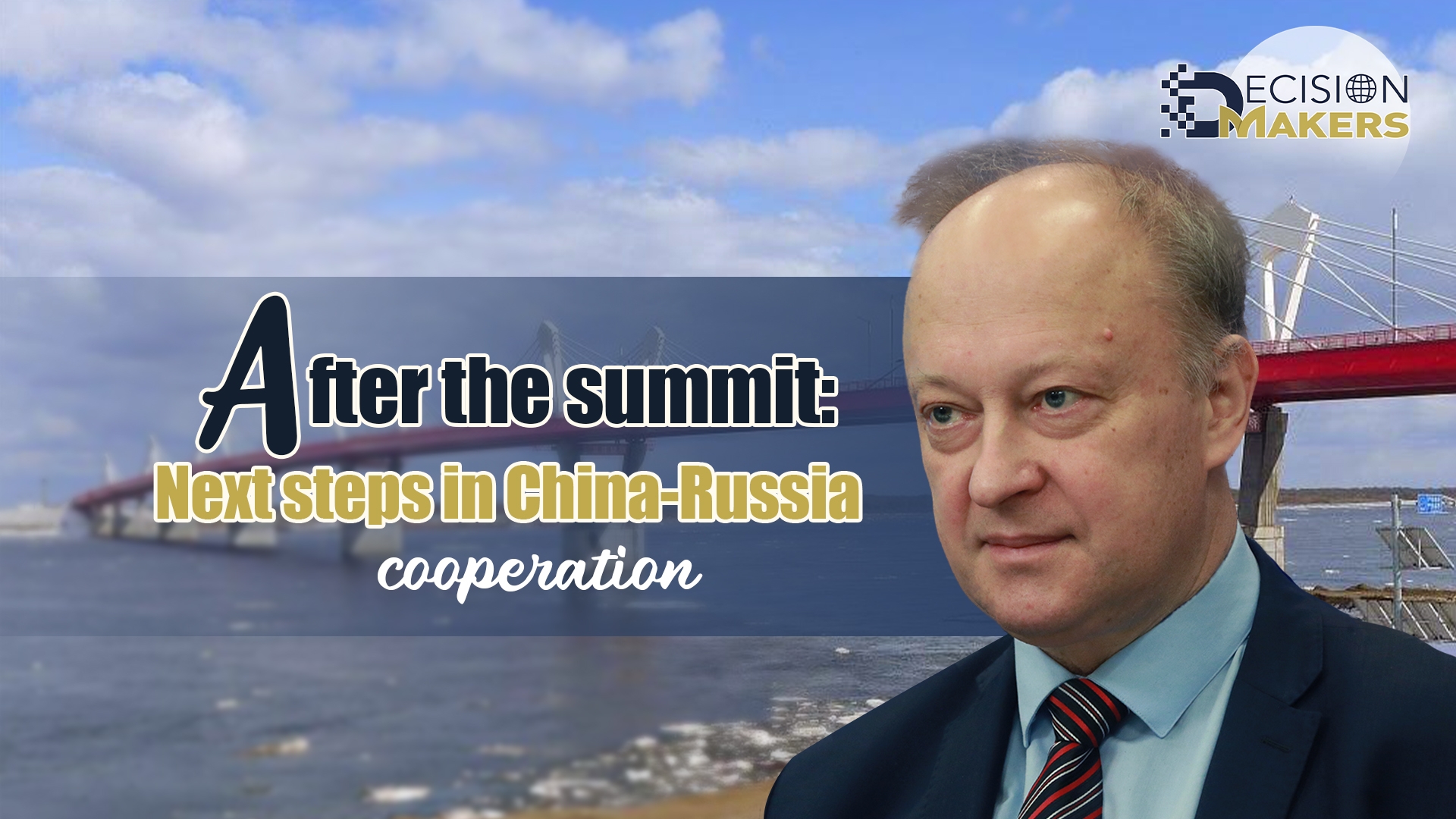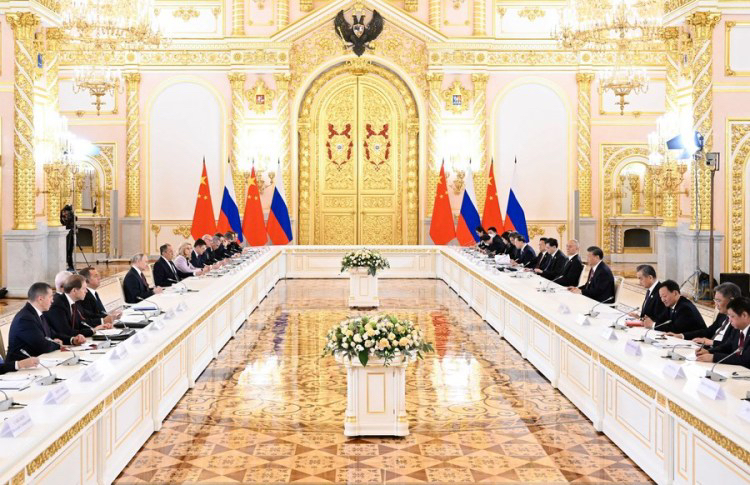
Editor's note: Decision Makers is a global platform for decision makers to share their insights on events shaping today's world.
By Andrey Kortunov
International summits are important and sometimes even indispensable. Top level meetings between leaders of hostile nations often turn out to be the only way to make necessary mutual concessions and to reach difficult compromises on critical matters. Summits between heads of partner counties usually become catalysts for bringing these partnerships to new, higher levels.
The recent trip of Chinese President Xi Jinping to Russia undoubtedly falls into the second category. It was a clear and a powerful signal to numerous groups of bureaucrats, diplomats, businessmen, military personnel, educators and civil society leaders on both sides that it's high time to roll up their sleeves and to convert the general political agreements reached at the highest level into specific plans and deeds.
Some of the pending tasks to be addressed after the summit look quite challenging. For instance, the two sides have to proceed with the ongoing transition to national currencies in bilateral trade. Currently, about half of the trade between Russia and China is carried out in rubles and renminbi. However, if one excludes energy, the share of national currencies in the bilateral trade appears to be much less impressive. The reliance on the U.S. dollar as the prime means of payments makes many Chinese companies exporting to Russia vulnerable to secondary U.S. sanctions, which significantly constrains the bilateral trade.
Another urgent need is to upgrade the transport and logistics infrastructure between the two countries that share one of the longest land borders in the world. Russia's strategic reorientation from the West to the East requires a rapid progress in building advanced communication lines and gateways to China, including new gas pipelines, railways and highways, bridges, port terminals, border crossings, etc. China's experience in infrastructure development in various regions of the planet is very impressive. Beijing could assist Moscow in dealing with infrastructure bottlenecks on a larger scale than it is the case now.

Chinese President Xi Jinping and Russian President Vladimir Putin hold large-group talks at the Kremlin in Moscow, Russia, March 21, 2023. [Photo/Xinhua]
It is also worth mentioning that Russia has to work much harder in order to significantly increase its non-energy exports to China. The rapid increase in Russian-Chinese trade turnover in 2022 was definitely a major success story for the two nations, but one should not forget that this success was reached largely due to the specific conjuncture of the world energy markets that was quite favorable for Russia's energy exports.
However, this conjuncture will not last forever. In fact, the odds are that over time oil and gas prices will go down, in part due to the green transition of the Chinese economy. This means that in order to consolidate the recent positive trade trends, it is essential to diversify Russian exports. For instance, there is a lot of untapped potential in such items of Russia's exports to China as fish and seafood, pork and dairy products, soybeans and confectionery, furniture and handicrafts, and so on. That also implies more engagement on the part of small and medium businesses from both sides.
Still, it might be even more important to gradually move away from basic trade relations to deeper and more comprehensive industrial cooperation. The challenge for Russia is to become an organic part of Chinese technological and production chains, including those in high-tech areas (for example, in the aircraft industry). This goal will not be easy to achieve, as it will require a much deeper knowledge of the Chinese production culture than Russia has today. However, this is an absolutely necessary task if the two nations are committed to maintaining their strategic partnership for a long-term future.
Andrey Kortunov is director general of the Russian International Affairs Council.

 中文
中文



